Latin America
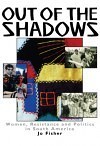
In Out of the Shadows, author Jo Fisher interviews women in Argentina, Chile, Uruguay, and Paraguay to show how they have moved into the vacuum left by the military’s destruction of the male-dominated left. Chapters describe how women have organised—in communal kitchens in Chile’s shantytowns, as trade unionists in Uruguay, peace activists in Paraguay, mothers of the disappeared and self-help groups in Argentina, as grassroots feminists in Chile—ending the isolation of home life. | more…

Loosely based on the Haitian slave insurrection of 1791, Babouk is a biting account of colonialism at its peak. By using the imagination of the novelist to fill in the gaps in the historical record, Endore is able to show us how slavery felt to the slaves who experienced it. His novel is rare for its depiction of the shared history of the slaves and its attention to the variety of the slave experience. It provides the reader with a vivid history of Haiti and a compelling account of slavery and rebellion. | more…
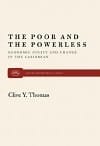
Argues than another form of development—by the poor and for the poor—is not only possible but necessary. | more…
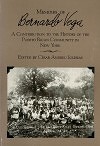
When Bernardo Vega arrived in New York from Puerto Rico in 1916, he was at the forefront of a migrant stream that was soon to become a flood. His memoirs—perceptive, lively, and politically aware—provide us with a unique and often humorous firsthand account of the life of an immigrant, as well as of the concerns and activities of the Puerto Rican community in New York in the period between the wars. | more…
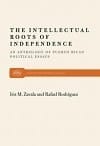
Explores the impact of colonial domination and defends Puerto Rican anti-imperial struggles. | more…

Presents the celebrated Cuban revolutionary’s thoughts on “Nuestra America,” the Latin American Martí fought to make free. | more…
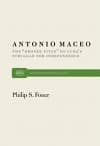
A powerful portrait of Maceo, committed anti-imperialist and heroic independence fighter. | more…
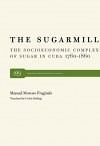
This extraordinary work deserves to be called monumental for its scrupulous and exhaustive analysis of the development of the sugar industry in Cuba, for the imposing originality of its approach, and for the unsentimental but no less passionate vision of history it embodies. The product of twenty years of historical research combined with ten years of economic and technical work in the industry, The Sugarmill is a landmark in post-revolutionary Cuban scholarship. | more…

Explores the emergent threat of U.S. imperialism from 1881 to 1895. | more…

This volume covers the imposition of the U.S. domination over Cuba through the Platt Amendment, which marks the beginning of U.S. neocolonialism. | more…

Argues that the Cuban nation was a central protagonist in the conflict — rather than a passive victim of a conflict between great powers. | more…
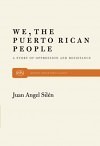
Silén restores to his people their history, stolen from them along with their land and independence. | more…











